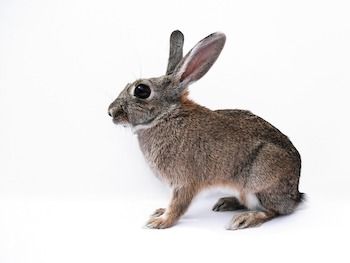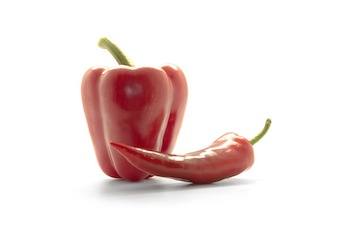Your rabbit needs some fresh vegetables every day because they pack vitamins and minerals your rabbit can’t get from pellets or hay. But can rabbits eat peppers? These veggies are a colorful and tasty treat with lots of important nutrients, so the short answer is yes.
The long answer, on the other hand, depends. You can’t give your rabbit a lot of them, and not all peppers are safe. For instance, your bunny can munch on all bell peppers assortments, but not on jalapeno peppers.
Let’s look at the pros, cons, and what sort of peppers you can feed your rabbit.
PROS
Bell peppers are packed with fiber, vitamins, minerals, and water, plus antioxidants.
- Antioxidants that fight free radicals and chronic illnesses, including cancer and arthritis that bunnies are at risk for
- Fibres that keep your rabbit’s good gut bacteria in top-shape so they can fight infections
- Manganese to keep your rabbit’s bones strong
- Omega-3 and Omega-6 Fatty Acids for brain and joint health
- Potassium for heart and nervous system health
- Vitamin A for eyesight, teeth, and bones
- Vitamin B6 for improved metabolism and digestion
- Vitamin C for healing lesions
- Vitamin E for healthy, lean muscles
- Vitamin K1 for fighting anaemia that Dwarf breeds are especially prone to

Besides, bell peppers have a crunchy texture. Munching on these veggies trims your rabbit’s teeth and prevents overgrowing because, in case you didn’t know, rabbits’ teeth never stop growing.
CONS
Actually, the main con worth mentioning is the high water content.
Bell peppers have high water content, meaning 92% of their total weight. This high water intake can have its advantages because rabbits need to hydrate, but it can also prove dangerous. Water-packed treats and veggies can trigger diarrhea in your rabbit, which can lead to dehydration and death if left untreated.
How Do I Feed My Rabbit Bell Peppers? Tips and Tricks
The House Rabbit Society can reassure you that your rabbit can eat:
- Green peppers
- Red peppers
- Yellow peppers
- Orange peppers
Remember that sweet peppers (orange and yellow) are sweeter than red and green ones, so your bunny might not appreciate their flavor.
- Portion size is essential. Fresh veggies and fruit should constitute 15% of your rabbit’s daily food, meaning about one tablespoon per two pounds of bodyweight.
- Bell peppers should only be one small part of that tablespoon of veggies and fruit. It’s not wise to feed bell peppers to your rabbit every day.
- Rabbits can develop a sweet tooth for sweet peppers. With the same knack of begging for treats as your dog, your bunny might badger you endlessly for another slice of pepper.
- Start with a small piece, and watch for any adverse effects on your bunny. Gradually increase the bell pepper portion size until you get to one slice a few times per week.
- Remove the seeds and core. Although they’re not toxic, they lack nutritional benefits. Cores can also get stuck in your bunny’s digestive tract, causing a dangerous blockage.
- NEVER give pepper leaves to your rabbit, these are toxic.
- Don’t feed Jalapeno peppers to your rabbit because they trigger gastric discomfort and pain. Rabbits can’t vomit, so they will have to wait it out until the jalapeno with its burning sensation travels through all their intestines.
- It’s best not to give your bunny cooked peppers. Cooking these vegetables decreases their nutritional content, and it also makes them softer. Mushy foods can trigger diarrhoea and they’re also not good at trimming your rabbit’s teeth.
- Don’t feed your rabbit expired peppers because they might be mouldy. Even if you can’t see the mould with your naked eye, it can still be there and it can affect your bunny’s life.

